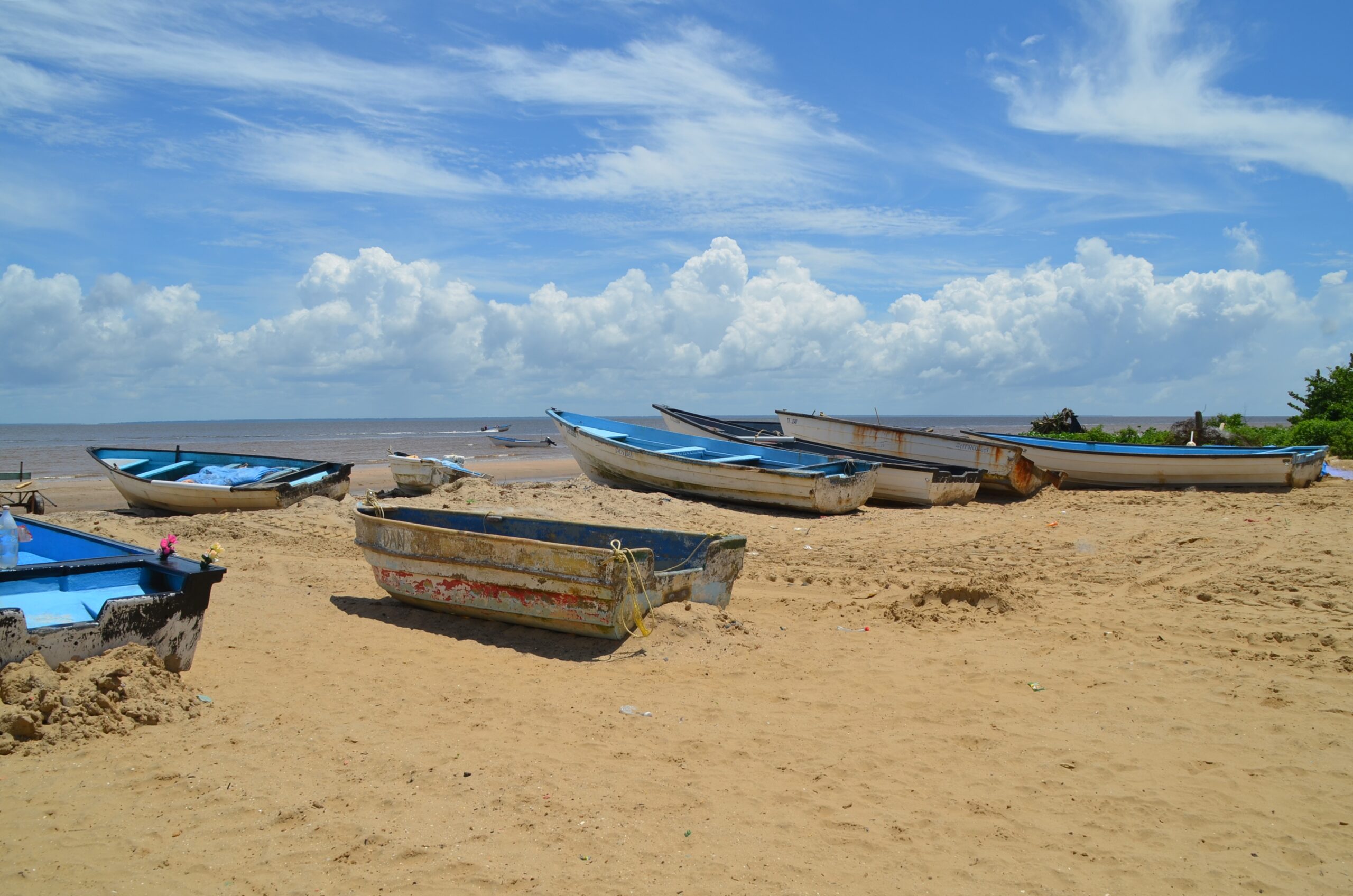Ten years ago, Trinidad and Tobago’s waters were typically dotted with small boats brimming with bountiful catch as fisherfolk returned to fishing depots in the early morning.
Among these fortunate fisherfolk was third-generation fisherman, Andy Williams, who consistently brought in a diverse array of fish such as Snapper, Spanish Mackerel or Kingfish, Cavalli, and Shark. However, Andy revealed within the last decade, “the fish have dropped.”
On a visit to local fishing depots across the islands, other fishermen sang the same song: catches drastically diminished by more than half, leaving local fishermen with measly quotas that barely live up to their former glory.
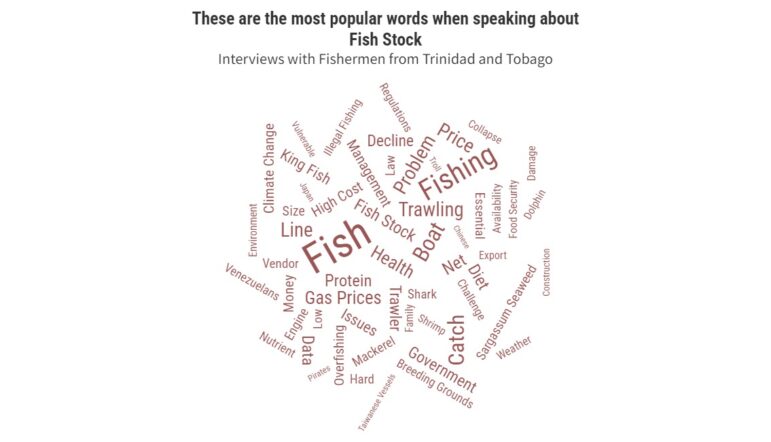
Future Fishers, a Trinidad-based NGO, conducted a study in 2022 to offer an evidence-based snapshot of Trinidad’s current state of fish stocks along the northeastern coast. The baseline accounts for 40% of the annual fish catch, highlighting that over 70% of fishermen use net fishing locally.
Though scorned among fisherfolk, white nets are widely used and known for catching an abundance of low-value fish, unlike the favoured use of green nets.
Fishing practices present only a small part of the local fishery’s challenges. Dennis Sammy, Future Fishers Project Manager informs us of “an open access fishery legislation.” This means anyone could buy a boat, register it and commence fishing without encountering limitations or obstacles.
The Culprit
Fisherfolk across the islands are unconvinced and believe the main reasons behind the drastic decline in fish stock over the years are heavy commercial fishing methods such as trawling.
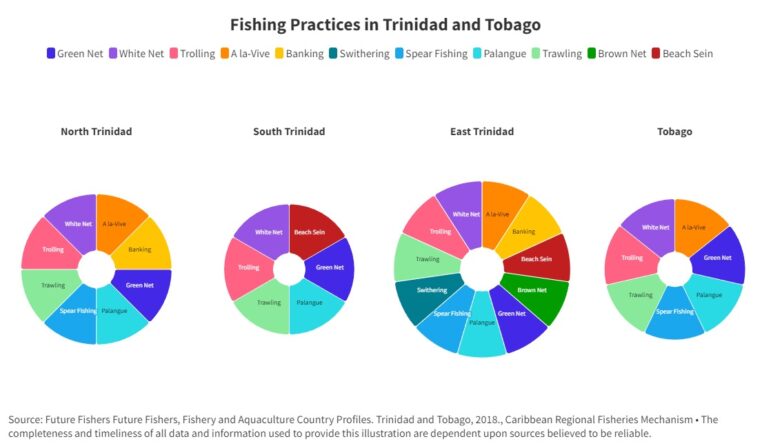
Until now, reports continue to surface about undocumented trawlers, stretching as long as a cricket ground, dragging nets through the Caribbean waters, catching groundfish like shrimp, and scooping up numerous unwanted fish and marine species, which are ultimately tossed overboard.
“It was looking like a big open highway, silver from the distance.” Fisherman Don Miguel Pavy recalls his first encounter, some 25 years ago, with an unidentified trawler off the southern coast of Trinidad. “Billions of fish that are dying in one pass of the trawler.”
Discarded fish are called bycatch. “That coupled with illegal, unregulated, fishing that is taking place a lot in Trinidad,” Dennis says confidently. “Trinidad and Tobago has one of the oldest legislation in the world with penalties that are very tiny and it’s not significant to deter perpetrators.”
Recent data from the Global Initiative Against Transnational Organised Crime ranks the twin-island republic 19 out of 21 Caribbean and Central American nations in 2023 for its performance in combatting illegal, unreported and unregulated (IUU) fishing practices. A drastic improvement after placing 6th just two years prior.
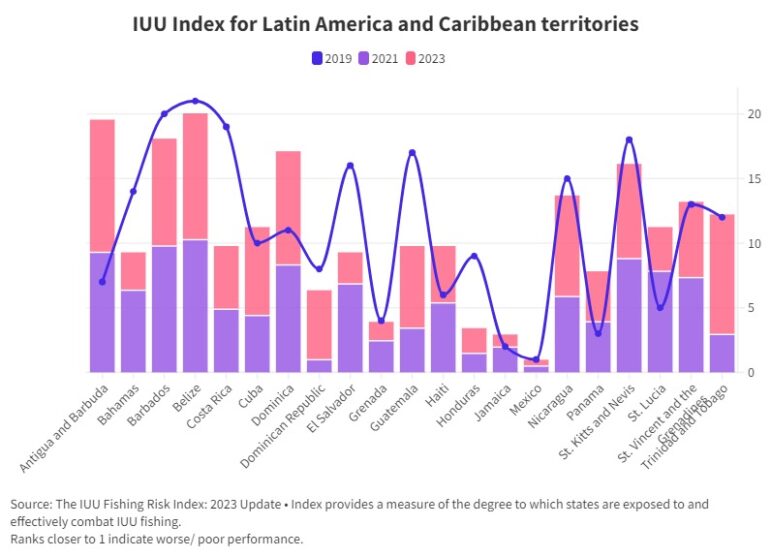
The trawl fishing season extends from May to August in the Gulf of Paria, though fishermen say it’s open all year round in a known breeding ground, and from October to March on the southern coast. Industrial vessels trawling off the north coast are quite commonly seen in Trinidad between November and January.
Culture and Food Security
Yet not everyone seems convinced that the problem is beyond the country’s maritime borders. Ecologist and Scientist, Alojsche Wothke, CEO of Environmental Research Institute Charlotteville, Tobago argues that the culture could inflate the situation.
He speaks of the events during ‘‘spawning aggregation’’. This is where fish come together in one place at a specific time to breed and lay fertilised eggs.
Wothke emphasises: “Fishermen knew exactly when this happens, and every year for the last 200 years or something, they went there and caught the reproducing stock.” This led to the collapse of some species of Grouper, Snapper, Lobster and certain Mackerels across the region.
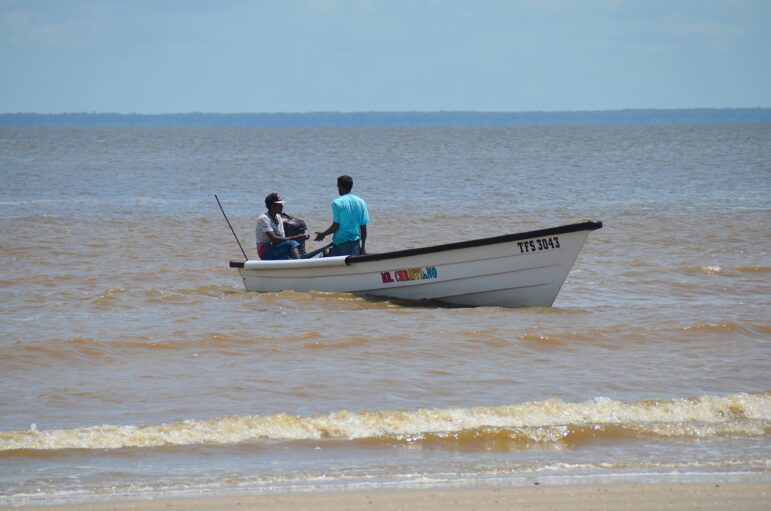
Wothke quickly identifies the role climate change and warming waters play in this spawning cycle, “the unusual or shifting plankton production, then impacts the fish that feed from it, for example, Flying Fish or Anchovy.” The result, he adds “Plankton is not there, the Anchovies die.”
This not only poses a food security concern but impacts the health of individuals. “The fish that we have, is one of the healthier choices of protein that you can do, definitely better than chicken,” admits Wothke confidently.
“It (fish) is a high-quality protein,” says Registered Dietitian and Certified Diabetes Educator, Kristy Toolsie. This means it is not only easily digestible but provides the body with all the proteins it needs.
Yet, despite the recognised nutritional importance of fish, issues such as limited availability and high cost make it difficult for people to include it in their diets.
The traditional practice of fishermen in some Trinbagonian communities is to provide fish to their families. However, due to increasing costs associated with fishing, it is becoming unaffordable for vulnerable people in rural communities, leading to concerns about malnutrition and high-quality protein loss.
Toolsie disclosed, “They’re going to not only lack in protein, they’re going to lack in omega-3s and all the other essential vitamins that fish can provide.”
Data Collection and Analysis
The investigation reveals a lack of reliable long-term data collection and analysis for informed decision-making, the need for better fisheries management, and the potential impacts on food security and vulnerable communities present urgent issues that need addressing.
No reports, to date, examine the population of fish being overfished and the available FAO and CRFM data could not be assessed as it is outdated.
The Fisheries Act passed in 1917, continues to regulate fisheries management throughout Trinidad and Tobago and is currently being updated. If the laws are eventually approved, it has the potential to impact the state of fish stock across the islands significantly.
Unfortunately, this correspondent was unable to get a response to questions posed to the Ministry of Agriculture, Land and Fisheries on the state of the fishery, possible challenges faced and claims of IUU fishing practices in Trinidad and Tobago.
